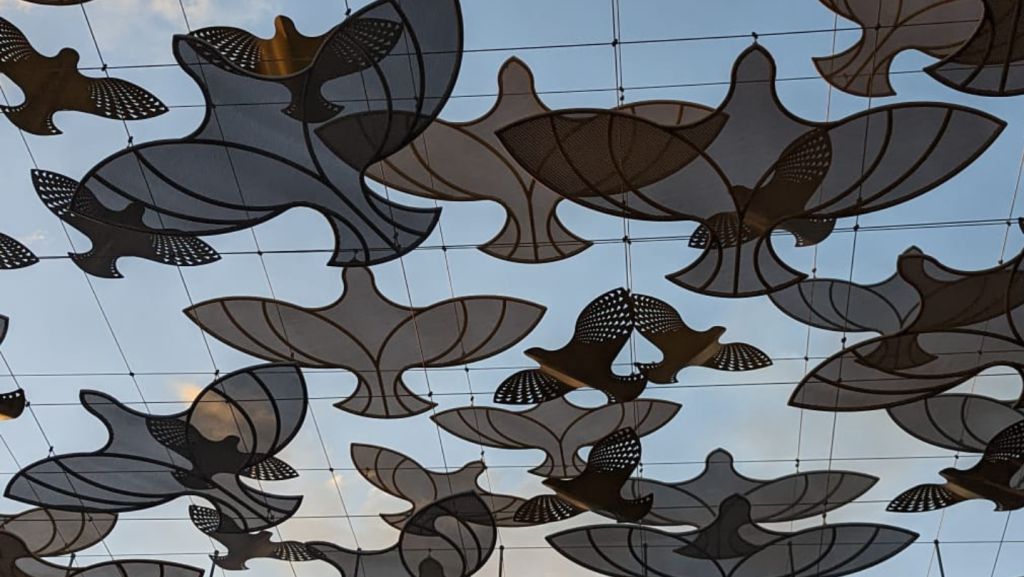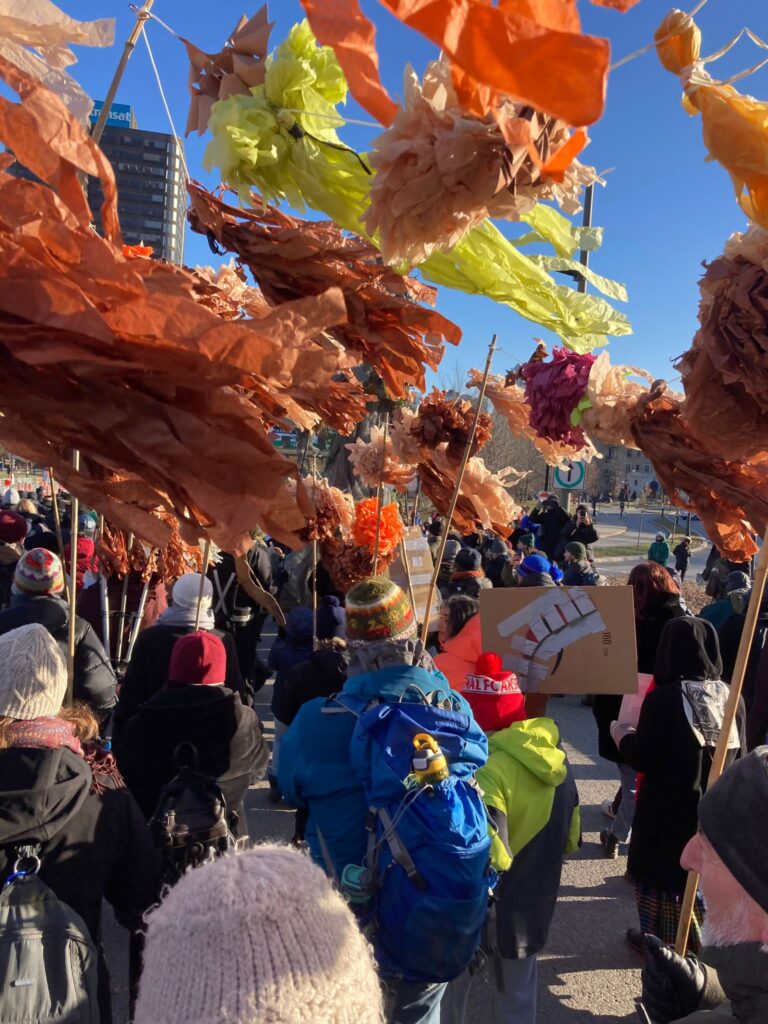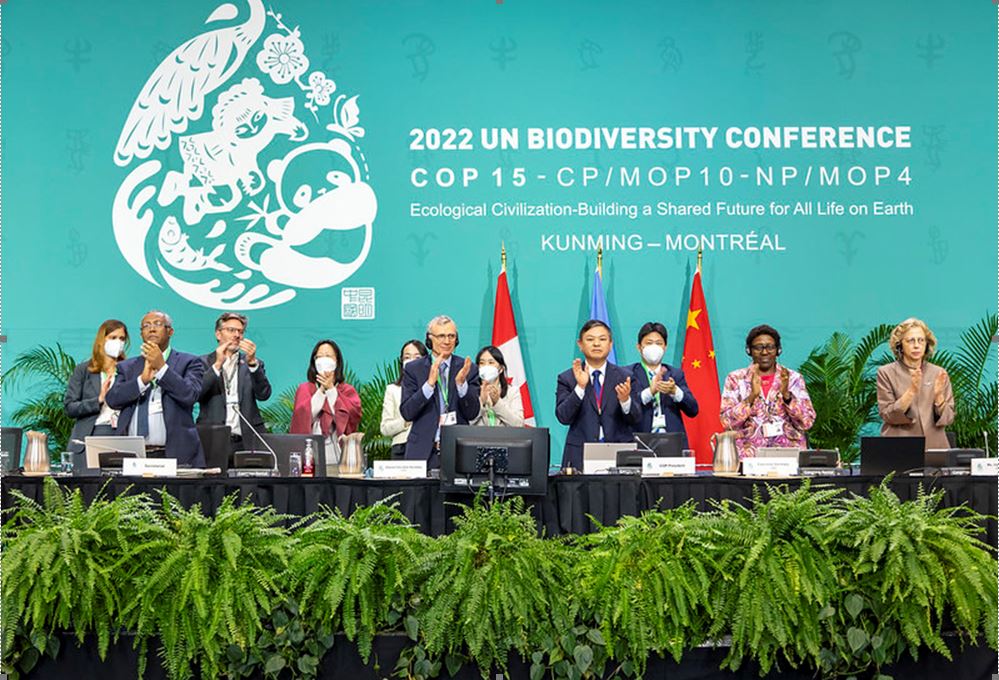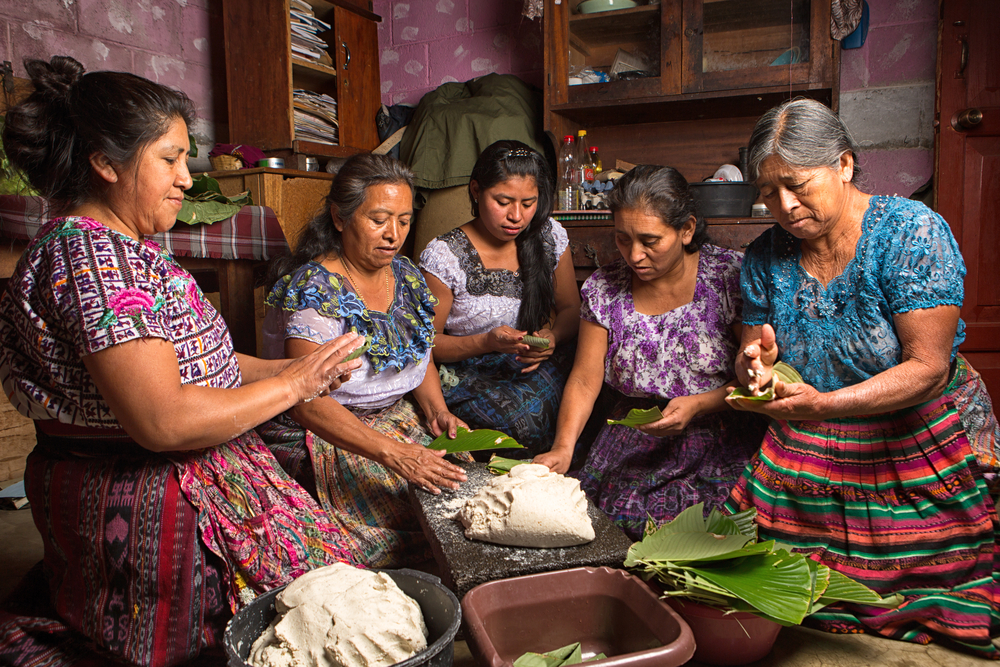BirdLife takes flight at the UN Climate Summit

As we delve into a busy two weeks of COP28, here are the key commitments we are looking for from governments around the world. Stay tuned to find out what happens as we hold decision makers accountable and watch to see whether COP28 delivers the breakthroughs that are so desperately needed for a brighter future for people and planet.
By Dr Rhiannon Niven, Senior Policy Manager – Climate & Energy
Header Image: Canopy of Birds at COP28 © Lucia Rodriguez
As many start winding down towards the end of year and holiday period, the climate world is working at a frantic pace. Starting yesterday, approximately 70,000 people have joined the United Nations Framework Convention on Climate Change (UNFCCC) 28th Conference of the Parties, or COP28 in Dubai, United Arab Emirates. Here, we’ll see world leaders, government representatives, academics, business, philanthropy, Indigenous Peoples, activists, youth, and non-government organisations fight to increase collective ambition around climate action.
These meetings happen annually, and last year’s – COP27 in Sharm el Sheikh in Egypt – made big headlines, with leaders coming together under tense negotiating conditions to deliver the long-awaited Loss and Damage Fund, first floated as an idea back in 1991.
This year, eyes of the world are on Dubai and the UAE, to assess our global progress on action against the Paris Agreement under the ‘Global Stocktake’ and limiting global warming to 1.5°C. Parties must make advances across a range of thematic issues, addressing mitigation, adaptation, loss and damage, just transition, as well as means of implementation support for developing countries. This is our Leaders’ opportunity to come together and take meaningful action. The recent Emissions Gap Report from UNEP shows that current pledges under the Paris Agreement put the world on track for a 2.5-2.9°C temperature rise above pre-industrial levels this century. We must change course.
What are BirdLife’s priorities?
BirdLife will be at COP28 ready to put our flock into action.
We will be continuously beating the drum for nature to be put at the heart of the climate conversation. The importance of biodiversity in reaching climate goals, and vice versa, is now widely recognised by science. Achieving the Paris Agreement and the recently adopted Kunming-Montreal Global Biodiversity Framework (KMGBF) global goals – and in turn the Sustainable Development Goals (SDGs) – will only be possible if these are addressed in an ambitious, synergistic, integrated and mutually supportive manner. An integrated, rights-based approach to tackling humanity’s challenges has also never been more critical.

Below we set out our key priorities for COP28:
Deliver an ambitious outcome for the Global Stocktake that integrates climate and biodiversity action
The Global Stocktake provides the opportunity to formally recognise the role of nature and biodiversity for climate action, and embed nature-based solutions and/or ecosystem-based approaches as critical mechanisms to mitigate, adapt to, and avert, minimise, and address loss and damage from climate change. Here we call for linkages to the KMGBF and want to see 30-50% of the Earth’s land, freshwater and ocean ecosystems protected, conserved and restored to halt and reverse biodiversity loss, through a rights-based approach.
Nature must not be used as greenwashing or as an excuse to compensate for, or delay the phase out of fossil fuels
At no point should tackling the biodiversity and climate crises together amount to greenwashing or result in unintended outcomes, e.g., clearing intact ecosystems for wind farms. Action to protect, conserve or biodiversity also cannot be an excuse to delay economy-wide emissions reductions.

Uphold the rights of Indigenous Peoples, local communities, land stewards and other marginalised groups
Indigenous peoples and other marginalised groups are among the first to face the direct consequences of climate change, due to their dependence upon, and close relationship, with the nature, ecosystems, and its resources. It is absolutely critical that we uphold the rights and listen and incorporate the perspectives of Indigenous Peoples, local communities, land stewards, and marginalised groups who may be disproportionately affected by mitigation and adaptation actions related to nature.
Promote a renewable energy transition that protects and conserves biodiversity by utilising nature-safe approaches in alignment with the KMGBF, through a rights-based approach.
As part of the fossil fuel phase out, we must rapidly move towards a just and equitable transition to renewable energy with a target of 11,000 gigawatts of renewable energy capacity by 2030. To get this done, we need to utilise sustainable and cleaner energy sources (including sourcing of minerals) in a nature-safe and nature positive way, wherever possible. Siting, design and operations must be guided by and help to deliver the KMGBF, taking care to respect and involve Indigenous Peoples, local communities and land stewards, through a rights-based approach.

Stay tuned! As we delve into a busy two weeks of COP28, we’ll be reporting progress on our priorities and performance of governments around the world in delivering the ambition, finance and commitments for nature, climate and people we all need. Find out what happens as we hold decision makers accountable and watch to see whether COP28 delivers the breakthroughs that are so desperately needed for a brighter future for people and planet. Read here for more details on our key asks for the negotiations.